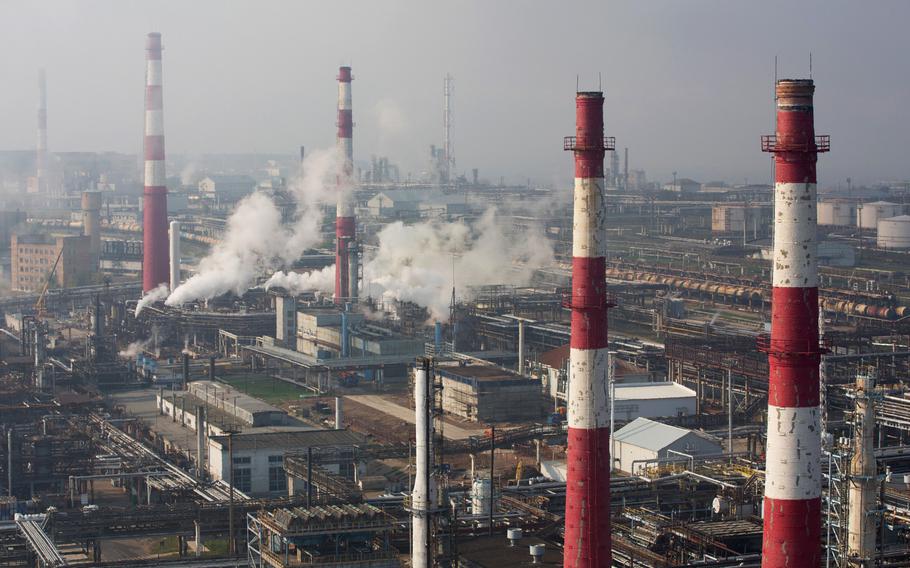
The Bashneft-Ufaneftekhim oil refinery in Ufa, Russia. (Andrey Rudakov/Bloomberg)
Russia’s latest weekly oil-processing rates dropped to the lowest in almost two months following the halt of two major refineries that were struck by Ukrainian drones.
The nation processed 5.41 million barrels a day in the seven days through Jan. 31, the first full week showing the impact of Ukraine’s attacks, a person with knowledge of industry data said. That’s 135,000 barrels a day below the average for most of December, according to Bloomberg calculations.
As the war between the two countries enters a third year later this month, Ukraine has intensified its drone attacks and targeted an industry that is key for Russian coffers. Strikes on oil-processing and export facilities have become increasingly disruptive in recent weeks, threatening Russia’s ability to supply fuel to foreign and domestic markets.
Average processing in January was slightly higher than in the last week of the month, at 5.48 million barrels a day, according to Bloomberg calculations. That’s still about 60,000 barrels a day less than during most of December.
Two major export-focused refineries — Novatek PJSC’s condensate processing plant on the Baltic coast and Rosneft PJSC’s Tuapse refinery near the Black Sea — completely halted primary crude processing in the last week of January following drone attacks on Jan. 21 and Jan. 25 respectively, according to a person with knowledge of the matter. Combined, the two facilities accounted for almost 5% of the nation’s daily processing average in December.
Novatek and Rosneft didn’t immediately respond to requests for comment on the halts of the facilities and how long they could last.
The drop was partially offset by increased activity elsewhere. Processing rates rose by a combined 204,000 barrels at other refineries, including Gazprom Neft PJSC’s facilities in Omsk and Moscow, Surgutneftegas PJSC’s Kirishi plant, the Afipsky and Ilsky refineries, and Lukoil’s sites in Perm and Volgograd.
A sizable amount of refining capacity at the facility in Volgograd is likely to be offline after a fire caused by a drone on Feb. 3. It’s one of the nation’s biggest refineries and supplies fuel both to domestic and foreign markets. The attack was meant to slash its production capacity, an official with knowledge of the matter in Kyiv said at the time.
In the last week of January, Russia’s daily diesel output was flat compared to the average for the most of December, according to Bloomberg calculations based on data from the person familiar. Gasoline production rose 2.7% as Lukoil’s Norsi restored processing rates.
More stories like this are available on bloomberg.com
©2024 Bloomberg L.P.